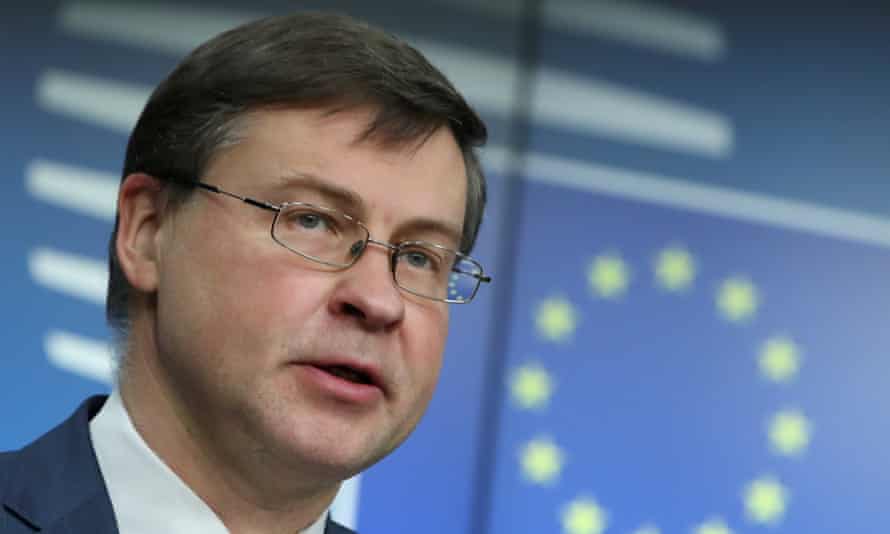Political outreach to promote the massive trade agreement stalls after tit-for-tat sanctions prompted by Beijing’s policy in Xinjiang

The European Commission has said that efforts to ratify a massive investment deal with China have been in effect suspended after tit-for-tat sanctions were imposed over China’s treatment of its Uyghur population in March.
“We now in a sense have suspended … political outreach activities from the European Commission side,” said the commission’s executive vice-president, Valdis Dombrovskis, on Tuesday. He said that the current state of relations between Brussels and Beijing was “not conducive” for the ratification of the deal, which is known as EU-China comprehensive agreement on investment.
“It’s clear in the current situation with the EU sanctions in place against China and Chinese counter sanctions in place, including against members of European parliament [that] the environment is not conducive for ratification of the agreement,” Dombrovskis said. He added that it will now “depend really on how broader EU-China relations will evolve”.
Although Dombrovskis’s comments do not suggest the pact has been formally suspended, they do, however, suggest that recent tensions between Brussels and Beijing have dampened the EU’s appetite for such a deal with China.
The European Union and China approved a controversial investment agreement in late December after seven years of marathon negotiations. The German chancellor, Angela Merkel, gave the talks a final push; the Chinese market is especially important to German carmakers and manufacturers who have a large presence in the country.
At the time, the pact was defended as a long-overdue opening to China’s vast market that would benefit European companies. If ratified, it could lead to Beijing loosening some of its notoriously stringent rules on foreign companies such as the need to operate through joint ventures with local partners.
The conclusion of the negotiations was a diplomatic victory for China’s leader, Xi Jinping. The talks were wrapped up in a video call with Xi, the European Commission president, Ursula von der Leyen, president Emmanuel Macron of France and Merkel herself.
But the agreement angered China sceptics and human rights activists in Europe.
Then, in a dramatic turn of events in March, the European Union imposed sanctions on four Chinese officials involved in Beijing’s policy on Xinjiang. In response, China swiftly imposed counter sanctions that targeted several high-profile members of the European parliament , three members of national parliaments, two EU committees, and a number of China-focused European academics.
Analysts said that Dombrovskis’ comments on Tuesday were unsurprising and reflected how relations between Beijing and Brussels have deteriorated in the last few months. The chances of further progress, according to Michael Reiterer, distinguished professor at Brussels School of Governance, look uncertain.
“As long as members of the European parliament are on sanction list – impossible,” he said.
